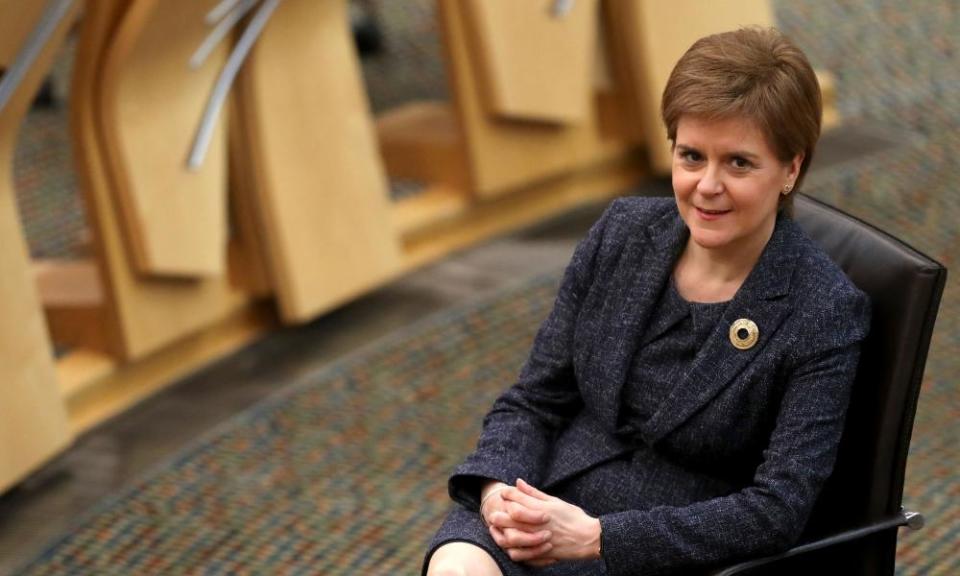Give credit to Nicola Sturgeon and Scottish democracy

Martin Kettle’s article on Rishi Sunak and Nicola Sturgeon (Nicola Sturgeon and Rishi Sunak were both playing for Scotland’s future, 3 March) was thoughtful, but he reinforces the oft-repeated UK media narrative that Sturgeon’s popularity during the pandemic is solely due to her presentational skills, in referring to “Sturgeon’s successful presentation of herself as Scotland’s national crisis manager”.
Clearly she is a consummate performer, probably the best in the UK currently. However, given that England has a Covid-19 death rate that is significantly higher than Scotland’s, it is clear that Sturgeon has achieved a better outcome and saved many Scottish lives over the course of the pandemic.
Outcomes on other issues deserve some recognition, too. Many of Scotland’s social democrats are finding it increasingly hard to work out why the UK’s leading social democratic newspaper and its columnists persistently find it hard to give any recognition to a progressive, pro-European, social democratic government within these islands. Plainly it is far from perfect, something that Sturgeon, unlike the blustering UK government, often admits. Doesn’t Sturgeon deserve at least some support, as well as proper scrutiny and criticism? The Guardian doesn’t find it hard to give credit where it’s due to Jacinda Ardern in New Zealand. Why not Sturgeon in Scotland too?
Keith McLeay
Drymen, Stirling
• Martin Kettle says ministers complain that every UK grant to Scotland under the Barnett formula is “rebranded as exclusively Scottish government spending without any acknowledgment of where it comes from”. It in fact comes from taxes raised in the UK’s four nations, plus borrowing on behalf of the four nations, collected by the UK government and fairly redistributed by the UK. So you could say the Scottish government is spending Scottish money in Scotland. One day we’ll cut out the middleman.
John Warburton
Edinburgh
• Nicola Sturgeon has come in for much criticism (Nicola Sturgeon: government made ‘catastrophic’ error in Salmond inquiry, 3 March) and the health of Scottish democracy has been called into question. Can you imagine the UK government pursuing and losing a judicial review of its conduct? And, following precedent, declining to release the legal advice? Yes. Can you imagine the UK parliament successfully demanding the release of such advice? Or the prime minister subjecting himself to eight hours of detailed questioning by a parliamentary committee? And frankly admitting to errors? No. Accountable parliamentary democracy is alive and well in Scotland.
Adam Rennie
Edinburgh
• Steve Bell has Nicola Sturgeon addressing Alex Salmond as “youse” in his cartoon (If…, 2 March). Nobody in Scotland ever used that form when referring to one person. “Yous” is a plural pronoun, and, as such, is a valuable linguistic development, given the deficiency in the dialect usually referred to as standard English.
It’s a resilient form, having survived generations of palm pummelling in Scottish schools, as well as constant mockery and derision of the kind exemplified in the cartoon. Not only has it survived; in recent years, its use, naturally or defiantly, has been heard even in the discourse of university teachers. Maybe it’s that defiance that riles the elitists and linguistic bullies.
Liam Stewart
Orphir, Orkney

 Yahoo Finance
Yahoo Finance 